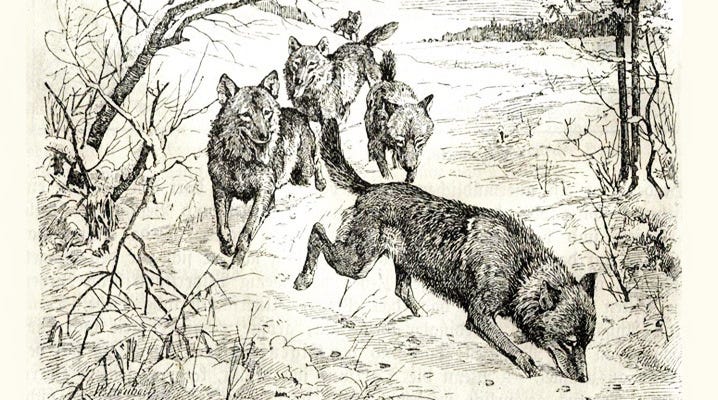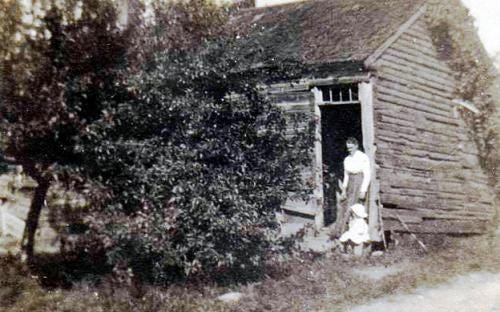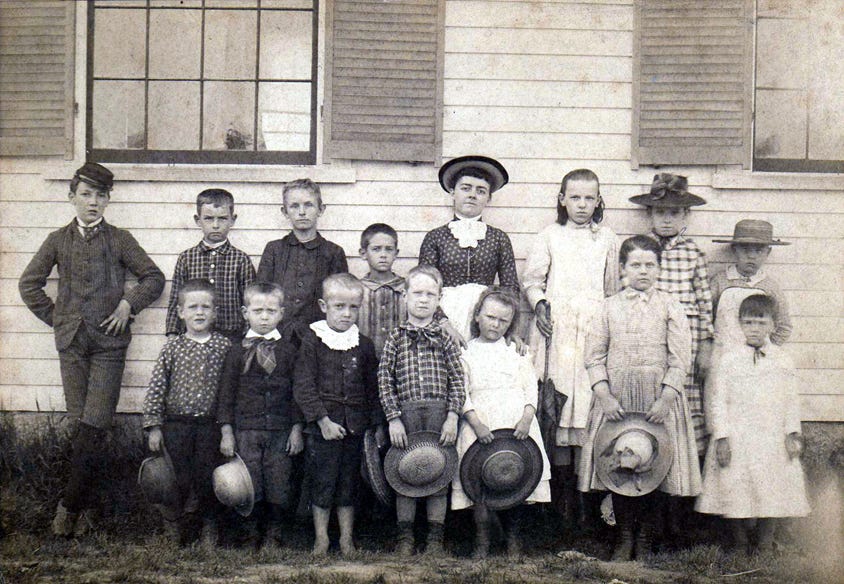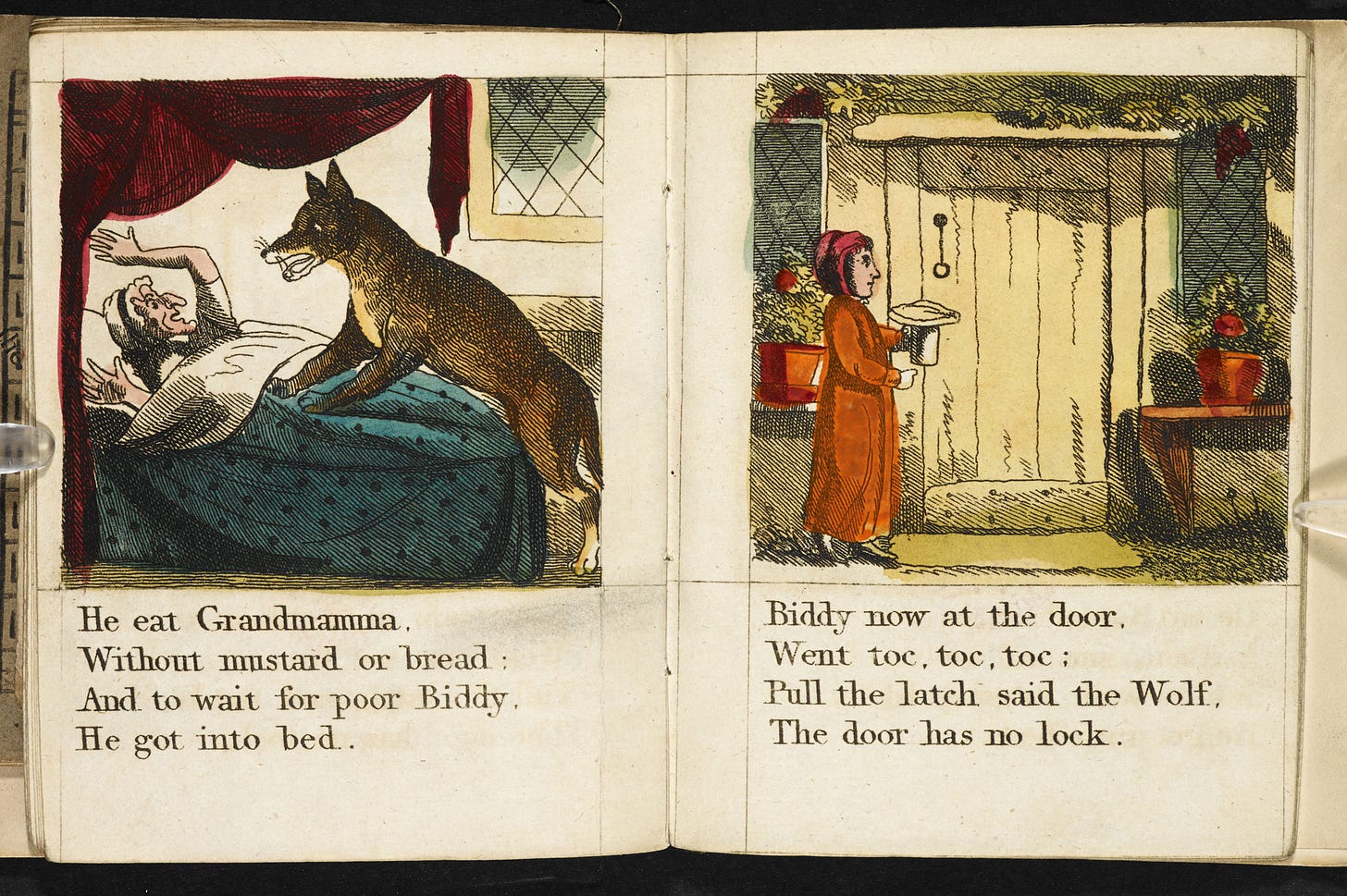Help spread the word about History Buzz by liking, commenting, sharing, and subscribing. Your paid subscription helps support the research and writing that makes History Buzz possible. You can help share the Buzz!
This is part 2 of a series looking at 19th century rural newspapers through the lens of the Andover Advertiser. You can read part 1 here.
In the mid-1800s, big city newspapers were, for the most part, politically partisan. Andover Advertiser editor Warren Draper decided that his newspaper would, instead, “promote an interest in home productions.” The first issue of the newspaper, February 19, 1853, is a combination of short local news stories, wise advice on life, advertisements, and stories from other newspapers.
Today we’ll look at the out-of-town news published in the paper’s first issue.
From the Gloucester (Mass) Telegraph, there’s a report from the State Board of Education presenting statistics to support the expansion of Normal Schools (teachers’ colleges) to support the growing number of public schools in the state,
Number of towns in the State, 325; number of Public Schools in the year 1851-2, 4,056; number of Scholars, in summer, 185,752; in Winter, 199,183. The Average Attendance, respectively, in Summer 136,309; in Winter, 152,645. Teachers, in Summer and Winter: Males, 2,454; Females, 5,456.
...we take pleasure in witnessing, both in the document now before us, and from our own observation, an increasing interest in our Public Schools. Nothing can so much conduce to the general welfare of the people, or indeed secure to them the civil blessings they now enjoy as the perfection and perpetuity of our School System.
For perspective…
Today there are 312 towns in Massachusetts with 400 school districts; 1,840 public schools; 911,465 students; and 75,000 teachers. The student-teacher ratio today is half what it was in the 1850s.
In the 1850s, Massachusetts was still primarily rural and agricultural. More students attended school in the winter when the work of farming was slow, but this was starting to change as work shifted from the field to the factory. Teaching was becoming a female-dominated field, with female teachers coming from the teaching colleges called “Normal Schools.” Male teachers often came from Harvard and other colleges.
By 1850, Massachusetts had a two hundred year history with public education. In 1642, the Massachusetts Bay Colony passed the first law requiring that children be taught to read and write. To the Puritan settlers, it was critical that citizens be able to read the Bible and the laws that governed them. It would be another 200 years before free public school education was available to all Massachusetts children.1 Nearly 200 years later, school districts across Massachusetts and the country continue to work to live up to the promise of education.
A second article culled from the Gloucester Telegraph appears to have been selected for a specific purpose. That is, to support Warren Draper’s insistence in his editorial – just two columns over on the same page – that the Advertiser was intended for “advertising, principally.”
It was, after all, the name of the newspaper, the Andover Advertiser.
The Gloucester Telegraph article is a commentary on how advertising has changed. For Draper, it was an encouragement, or perhaps even an exhortation, to advertise in the paper to ensure that, as he wrote, “the paper shall be continued for more than one year.”
The old plan of advertising occasionally, and then so timorously, that it seemed as if the advertiser was somehow afraid of committing himself over his own signature, has become unsuitable to the times. Advertising has now become systematized, reduced almost to a science, as it were, and therefore if one would succeed by means of it, he must take hold of it thoroughly and in earnest.
The author closed with,
That advertising, like many other good things, has its abuses, will not be denied. But the very facility with which it has enabled quacks to impose upon the credulous, is a proof of its wondrous aid to those who look to the public for support. The honest man should see to this. If knaves...can enrich themselves by freely advertising, how much more should they who have an honest reputation, and whose word can be relied upon?
These first two of the out-of-town news articles in Draper’s first issue of the Advertiser, had some relationship to the town.
Education - public and private - has been Andover’s claim to fame and driving force for centuries, so a piece on the state of public education in Massachusetts seems like a natural fit.
The exhortation to take out advertisements was more self-serving, but the newspaper was intended to be a public good that Draper and the community wanted to continue.
In a part out-of-town news/part advertisement for his own and his colleagues’ printing businesses, in an article called “New Publications,” Draper shared stories from a book of travel, including a short piece on a storm at sea. “The night was one long to be remembered, and the scene fearful and thrilling to the extreme…” Draper promised that he would continue to print excerpts from books that would be “acceptable to our readers.”
In other words, keep them coming back for more thrilling stories! Which leads us to…
A Thrilling Incident
From the Biddeford (Maine) Journal comes the recounting of “A Thrilling Incident” involving a farmer, his young son, and a pack of wolves.
The old tall tale dated back to the early settlement of Maine, which was annexed by Massachusetts in 1652.2
Early English settlers brought with them their old country fear of wolves. Wolves were extinct in Britain by 1760 and, although their numbers would have been greatly reduced, wolves would have still been present in the mid-1600s when the settlers left Britain for the colony.3 (Illustration4 )

A Thrilling Tale
To set the scene,
Often at night was the farmer's family aroused from sleep by the noise without which told that bruin was storming the sheep-pen or the pig-sty, or was laying violent hands upon some unlucky calf — and often on a cold, winter evening, did they roll a larger log against the door, and with beating hearts draw closer around the fire, as the dismal howl of the wolf echoed through the woods.

Back to our Thrilling Incident
The story was told about a man who lived on the farm belonging to Mr. H______.
His little son, eight years old, was in the habit, while his mother was busy with household chores, of running out into the fields and woods around the house, and often going where the father was at work.
One day, the father was out felling trees some distance from the house. It was in the late fall, after the leaves had fallen off the trees. He decided to stop work early and head for home. At the edge of the forest, however, he noticed an unusual pile of leaves,
Without stopping to see what had made it, he cautiously removed the leaves, when, what his astonishment to find his own darling boy lying there asleep!
He quickly picked up his still-slumbering son, put a log in his place, covered the log back up with leaves, and moved off a short distance to hide behind some bushes. After a short time,
He heard a wolf’s distant howl, quickly followed by another and another, till the woods seemed alive with the fearful sounds. The howls came nearer, and in a few minutes a large, gaunt…wolf leaped into the opening, closely followed by the whole pack. The leader sprang directly upon the pile of leaves, and in an instant scattered them in every direction.
Upon seeing the deception of a log instead of the tasty meal promised to his companions, the wolf realized its grave error. It dropped to the ground with a look of “the most abject fear” to await his fate.
For the rest, enraged by the supposed cheat, fell upon him, tore him in pieces, and devoured him on the spot. When they had finished their comrade, they wheeled round, plunged into the forest and disappeared…
All of this, from arrival of the wolf pack, to discovery of the deceit, to devouring their leader and comrade, happened “within five minutes.”
The grateful father “pressed his child to his bosom” and gave thanks for the “kind Providence which led him” where his son had fallen asleep while playing.
The wolf (had) covered him with leaves until he could bring his comrades to the feast; but himself furnished the repast. – Biddeford Journal
That child could sleep!
At least in this story, the wolves ate each other…and father and son lived to tell the tall tale.
1810 illustration of Little Red Riding Hood in the collection of the British Library5
Thanks for reading! Stay tuned for part 3 next week when I’ll share the story of “The Bank of True Love.”
Thank you for reading, commenting, sharing, and liking. You can help support the research and writing behind History Buzz by becoming a paid subscriber. As Advertiser editor Warren Draper wrote, “Whether the paper shall be continued for more than one year, will depend upon the patronage we may receive…” I thank you for your support!
~Elaine
Andover Center for History & Culture offers online and virtual history programming. We have three special free Close Encounters with History programs coming up soon.
To learn more visit AndoverHistoryandCulture.org/Programs.
These programs are made possible by a grant from Mass Humanities, which provided funding through the National Endowment for the Humanities (NEH) as part of the federal CARES Act legislation.
MassMoments.org, a project of Mass Humanities, provides a daily slice of this history through entries that explore a significant moment attached to each day of the year. Researched and written by historians, the entries offer fresh angles on well-known events and uncover histories that may be new to you.
https://www.history.com/topics/us-states/maine
https://www.wildlifetrusts.org/extinct-british-wildlife
https://books.google.com/books?id=2c1NYgEACAAJ&newbks=0&hl=en&source=newbks_fb







